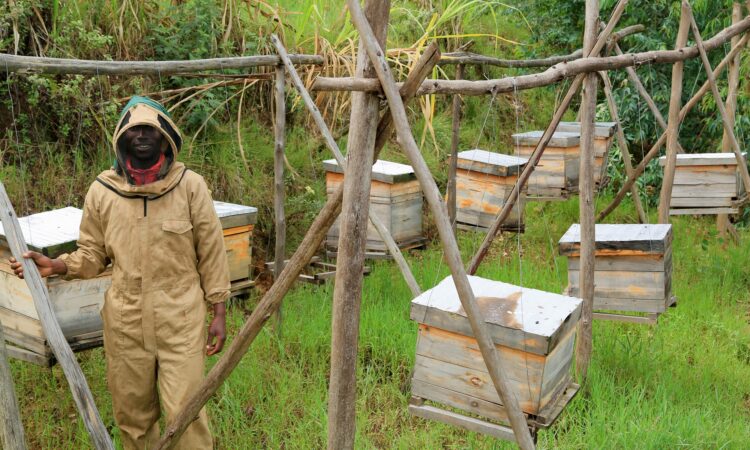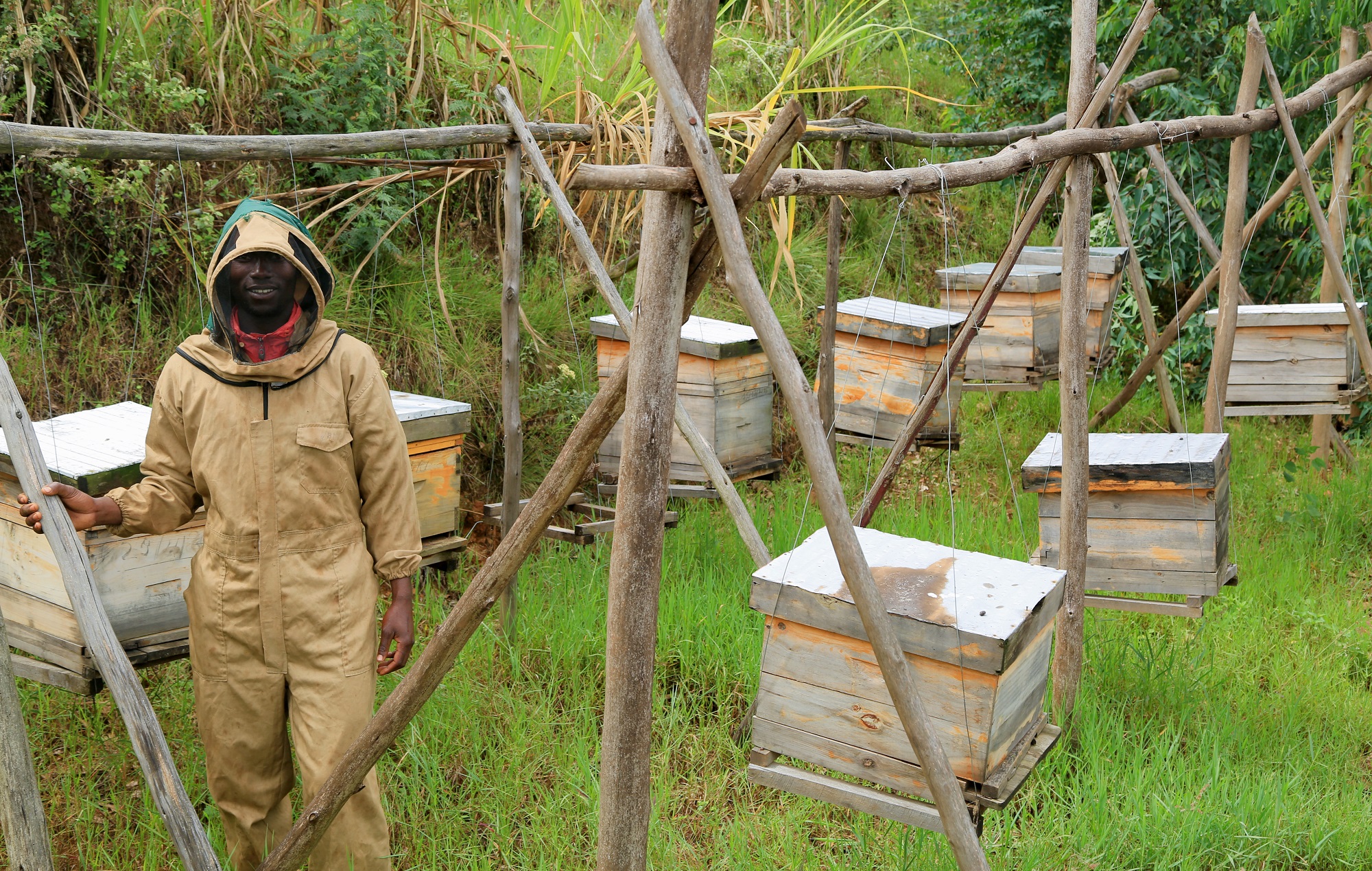The Rwandan Traditional Bee Keeping and Honey Experience : Rwanda is a country in East Africa that is known for its beautiful landscapes, diverse wildlife, and vibrant culture. One of the most interesting aspects of Rwandan culture is its traditional bee keeping and honey experience. This unique experience has been passed down through generations and remains an important part of Rwandan life today. In this article, we will explore the history of bee keeping in Rwanda, the process of harvesting honey, and the importance of bees to the local economy. We will also look at some current initiatives to preserve this ancient tradition and ensure that it continues to thrive for future generations. Join us on a journey through time as we explore the Rwandan traditional bee keeping and honey experience!

Bee keeping has been a long standing tradition in Rwanda, with honey being an important part of the culture. The Rwandan Traditional Bee Keeping and Honey Experience is an opportunity to learn about traditional bee keeping techniques and processes, as well as the unique flavor of Rwandan honey. Honey is a natural sweetener that is produced by bees from nectar. It forms the base for many of the world’s food and drink products, and is an important bee product in Rwanda.
In total, there are over 20 different types of honey produced in Rwanda; some are produced by beekeepers as a secondary source of income or to sell at market, while others are only available from wild sources. Through this experience, visitors will be able to explore the different types of bees found in Rwanda and gain insight into the process of harvesting honey from hives. Additionally, guests will have the chance to taste a variety of locally produced honey products and learn more about their production process. This experience offers a unique opportunity to immerse oneself in Rwandan culture while gaining insight into one of its most important agricultural practices.
Beekeeping has a long history in Rwanda, with traditional methods of beekeeping going back centuries. Beekeeping is an important part of the Rwandan economy, with honey production providing both an income for local beekeepers and a source of valuable nutrition for the people of Rwanda. This article will take a look at the history of beekeeping in Rwanda, from traditional methods to modern practices, and how it has impacted the Rwandan economy over time. It will also discuss how honey production has helped to improve nutrition in Rwanda, as well as how it has been used to create employment opportunities.

Traditional beekeeping offers many benefits to local communities, both in terms of the honey harvest and in terms of educating people about bees and their importance. It is a sustainable practice that helps protect local ecosystems while providing a unique harvesting experience. Traditional beekeeping also helps to create jobs and provides an income for local communities, as well as providing them with a valuable source of food. This article will explore the various benefits that traditional beekeeping offers to local communities, from the perspective of both the bees and the people who keep them.
Rwanda is home to an abundance of honey varieties, each with unique characteristics and flavor profiles. From the mild and sweet acacia honey to the spicy and fragrant wildflower honey, there is something for everyone. In this article, we will explore the different types of honey produced in Rwanda. We will look at the local varieties that are produced by beekeepers in Rwanda, as well as how they differ from one another in terms of taste and aroma. On this tour, you will also learn how to create a traditional beehive using wood, banana fibers, and cow dung.
Beekeeping and honey production have traditionally been male-dominated industries in Africa. However, recent initiatives have seen an increase in the role of women in beekeeping and honey production. Women are now leading beekeeping initiatives, providing training to other women, and setting up networks to support female beekeepers. This has had a positive impact on the industry as a whole, with more bees being kept and more honey being produced. Women are also helping to spread knowledge about sustainable beekeeping practices, which can help protect local ecosystems. In addition, their involvement has increased economic opportunities for women in rural areas where these activities are often the only source of income available. With this shift towards greater female involvement comes a chance to create more equitable working conditions for all involved in the industry.
Rwanda’s bee keeping culture has been around for centuries and is an important part of the country’s heritage. It is an integral part of the Rwandan economy, providing income to thousands of farmers, and helping to protect the environment by promoting sustainable agriculture. In recent years, there have been increasing efforts to promote beekeeping in Rwanda, both through government initiatives and local projects. If you are interested in learning more about this unique culture and getting involved in its preservation, there are a number of ways you can do so. From attending beekeeping classes to volunteering with local organizations that promote sustainable beekeeping practices, there are plenty of opportunities for individuals to get involved with Rwandan beekeeping culture.


